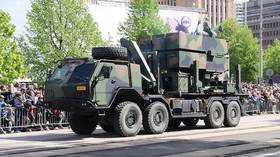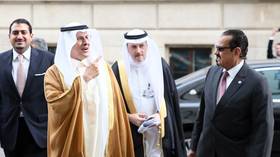US approves sale of advanced missiles to Middle Eastern ally

The US State Department has authorized the sale of the National Advanced Surface-to-Air Missile System (NASAMS) and Medium Range Air Defense System (MRADS) to Kuwait, the Pentagon announced on Thursday.
In a statement, the US Defense Cooperation Agency called Kuwait “a Major Non-NATO ally.” The proposed deal, which is worth $3 billion, will enhance the country’s ability to “defend itself against regional malign actors” and improve interoperability with the weapons used by American troops and other Gulf countries, the agency noted.
Additionally, the package includes seven AN/MPQ-64FI Sentinel air defense radars, dozens of missiles of various types, and other equipment.
The news comes two weeks after the US approved a $250 million contract to sell ammunition for M102 Abrams tanks to Kuwait.
Bordering Iraq to the north and Saudi Arabia to the south, oil-rich Kuwait is a member of the Organization of the Petroleum Exporting Countries (OPEC). In early August, Washington authorized selling military hardware to two other members of the organization: Terminal High Altitude Area Defense (THAAD) missile interceptors to the UAE and MIM-104 Patriot surface-to-air missile systems to Saudi Arabia.
However, just this past week, three members of the US Congress proposed punishing the two states for their oil output cut decision by withdrawing troops and missile defense systems from the countries. According to the lawmakers, the move to reduce production means that amid the ongoing energy crisis, Saudi Arabia and the UAE had “chosen to side with Russia.”













